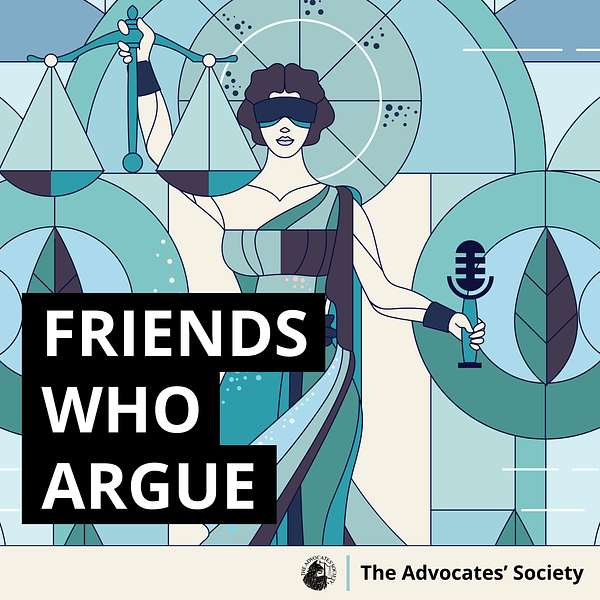
Friends Who Argue
Friends Who Argue
The Right to Disconnect - Part 3 with Dr. Lwam Ghebrehariat
This is the third and final segment of the Right to Disconnect limited series podcast. In this segment, Young Advocates Standing Committee Member James Hardy moderates a discussion with Dr. Ghebrehariat, who practises as a psychiatrist and lawyer in Toronto, focussing on the right to disconnect and burnout in both the medical and legal professions.
Dr. Lwam Ghebrehariat, JD, MD, FRCPC is a psychiatrist and lawyer in Toronto. He is a graduate of the National Theatre School of Canada (Acting, 2003), the University of Alberta (BA Hons First Class, Philosophy, 2007), the University of Toronto Faculty of Law (JD, 2011), McMaster University Medical School (MD, 2017), and the University of Toronto psychiatry residency program. Dr. Ghebrehariat provides psychotherapy, independent medical and psychological evaluations, and speaking services throughout Ontario.
James Hardy is an associate at Thornton Grout Finnigan LLP in Toronto and a member of The Advocates’ Society’s Young Advocates’ Standing Committee. James has a broad commercial litigation practice, which includes contractual disputes, auditor and other professional negligence actions, director and officer liability disputes, regulatory proceedings, and construction litigation. Prior to articling at Thornton Grout Finnigan LLP, James trained as a lawyer in the UK, including a Masters in Law at the University of Cambridge with a specialization in Commercial Law.
Land Acknowledgement
The Advocates’ Society acknowledges that our offices, located in Toronto, are on the customary and traditional lands of the Mississaugas of the Credit, the Haudenosaunee, the Anishinabek, the Huron-Wendat and now home to many First Nations, Inuit, and Metis peoples. We acknowledge current treaty holders, the Mississaugas of the Credit and honour their long history of welcoming many nations to this territory.
While The Advocates’ Society is based in Toronto, we are a national organization with Directors and members located across Canada in the treaty and traditional territories of many Indigenous Peoples. We encourage our members to reflect upon their relationships with the Indigenous Peoples in these territories, and the history of the land on which they live and work.
We acknowledge the devastating impacts of colonization, including the history of residential schools, for many Indigenous peoples, families, and communities and commit to fostering diversity, equity, and inclusiveness in an informed legal profession in Canada and within The Advocates’ Society.